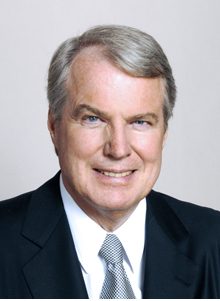

SECURE THE JOB YOU WANT & EXCEL
It is a big asset to bring to your job a well-conceived personal work philosophy that serves as a framework for how you are going to approach the duties, responsibilities and challenges of your new position.
To achieve both professional and personal success, incorporate these principles into your work philosophy:
- Be committed and passionate about what you are doing. No one achieved great results just going through the motions. You have to strive to be the best at whatever you undertake. The more passionate you are about what you are doing, the easier it will be for you to find success.
- Accept the fact that, to get ahead in today’s competitive world, you must make an extra effort to go beyond just meeting people’s expectations of yourself in the workplace. Many positions, especially those in management and most professions, require 10 to 12 hour workdays on a regular basis. Having to spend some time working late into the evening and on weekends is also common. This is why it is imperative for you to enjoy your job and see it as a worthwhile challenge.
- In most organizations, the care, well-being and satisfaction of customers or clients are MISSION #1, the first priority of everyone. In fact, just meeting their expectations is not good enough. If this is not clearly understood by front-line employees, support workers and management, the organization is headed for deep trouble. As Sam Walton, the founder of Wal-Mart, said: “There is only one boss. The customer. And he can fire everybody in the company from the chairman on down, simply by spending his money somewhere else.”
- There is only one path to follow in your professional and personal life and that is the ethical, moral and fair way. Always treat other people the way you would like to be treated yourself and never compromise your principles.
- If something is worth doing, it is worth doing right. Furthermore, it saves a great deal of time, expense and effort if you do it right the first time. In most cases, doing it right equates to the quality of the product, service or task performed and the speed with which it is delivered or executed. Regardless of what task you are given, always do the best job you can do.
- Organizations accomplish most of their results by people working with people, often through TEAMS. Establishing strong working relationships with customers, co-workers, supervisors and suppliers is essential. Wherever possible, foster a partnership TEAM mentality that is mutually beneficial for everyone. Lone rangers rarely go far. Two excellent articles on this subject from the April 2012 Harvard Business Review are The New Science of Building Great Teams (https://hbr.org/2012/04/the-new-science-of-building-great-teams/) and Teamwork on the Fly (https://hbr.org/2012/04/teamwork-on-the-fly/ar/1).
- Beware of conventional thinking, so-called experts and media reporting. Treat all of them with a high degree of skepticism, especially what you read, hear and see on all forms of the media. Think for yourself and trust your instincts. The more informed you become yourself, the harder it will be for others to manipulate you.
- Excuses should be used extremely sparingly. You not only have to do your best, you have to do what is required. Complaining and griping wastes energy and time, plus annoys your supervisor and colleagues at work. Stay focused on the solution, not the problems.
- Learn from the past but concentrate on the future. What is done is done. Let it go. What counts from now on is taking charge of your future destiny.
Each gender has its challenges. Women sometimes have trouble being taken seriously in business or at certain organizations. Columnist Dr. Joyce Brothers rightly advised: “Don’t try to be one of the boys. Be yourself. Capitalize on your female strengths and use the psychological tools you have acquired to deal with male chauvinism as well as to climb the ladder of success.”
CONTENTS
- Get Started
Doing a Personal Inventory
Personal Worksheets
Lifelong Network - The Best Opportunities
Serious Research Required
Online Job Searches
- What to Avoid
- Your Résumé
Getting Your Résumé Noticed
Résumé Format and Content
Other Recommendations
- Making Contact
The Covering Letter
- Preparing for the Job Interview
- Having a Successful Interview
The Start
Interview Questions and Answers
Dealing With Compensation Issues
The End of the Interview
Phone Interviews
- After the Interview
Your Follow-up
Assessing the Interview
References
- The Job Decision
- Internships
Other Resources
- Prepare Yourself
- First Steps
- Hiring
Using a Hiring Committee
Finding the Right Candidates
The Interview
Checking References
The Right Start for New Hires - Motivating
Achieving Top Performance
Goals and Objectives
Build on Strengths
Demonstrating Leadership - Delegating / Empowering
- Performance Reviews
- Major Challenges / Task Forces
- Firing
Addressing Poor Performance
The Termination Meeting
Resignations
Exit Interviews - Need for Balance
Conclusion
Appendix 1. Personal Worksheet Sample
Appendix 2. Résumé Sample
Appendix 3. Covering Letter Sample
Acknowledgments
About the Author
Appendix 1. Personal Worksheet Sample
Appendix 2. Résumé Sample
Appendix 3. Covering Letter Sample
Acknowledgments
About the Author
